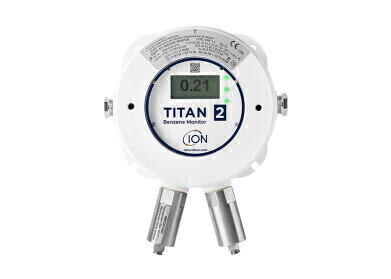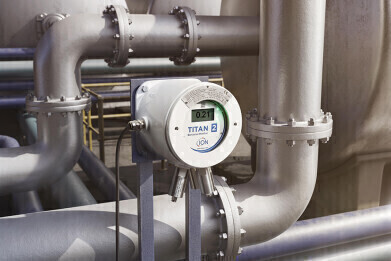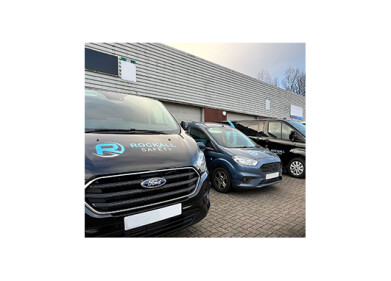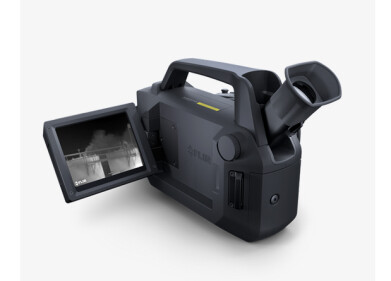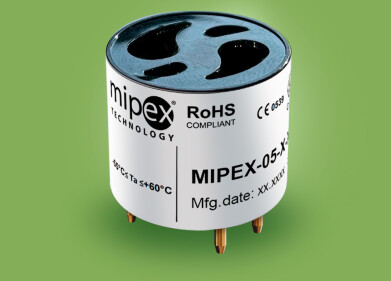Gas Detection
Comparing Methods of Benzene Detection
Sep 14 2023
Titan 2 vs Gas Chromatography (GC)
When detecting benzene, Titan 2 has advantages over all other technologies. Titan 2’s closest competition is GasChromatography (GC). In this article, we explore the benefits of Titan 2 over gas chromatography for benzene detection.
Technology Principles
Gas Chromatography is a method used in analytical chemistry to separate and analyse compounds, commonlybenzene, as well as other VOCs. It is very useful for the separation, identification, and quantification of compounds, as well as purity analysis of samples.
Titan 2 utilises Micro Gas Chromatography and is accompanied by a PID to offer detection of benzene at very low levels. Micro GC is a miniaturised version of conventional gas chromatography, featuring smaller column sizes, faster analysis times, and lower power requirements. Combining Micro GC with PID technology offers high sensitivity as well as rapid and sensitive analysis, resulting in a versatile and powerful analytical tool.
Operating Environment
Environmental conditions for gas chromatographs to operate effectively are required to be stable, meaning they are often used in a clean or controlled environment such as a lab or controlled area. The device’s accuracy andreliability may be hindered if external factors like temperature and humidity are not monitored and controlled. Specifically, it is crucial that humidity levels do not surpass 80% relative humidity (non-condensing).
Titan 2 can be easily installed and commissioned in the detection area, with the IP65 rated enclosure offering reliable protection against the intrusion of dust and water. Titan 2 is able to operate in conditions with up to 99%relative humidity (non-condensing). The ruggedness of Titan 2 guarantees continued functionality in demanding environments, including areas with significant amounts of dust and humidity.
Sample Time
Typically, a gas chromatograph is situated at a central point and is linked to several sampling lines that areswitched in via a valve block, and then each line is tested sequentially. Despite the GC system claiming to offer continuous detection, it took the GC we tested an entire hour to scan all of its input lines. Titan 2, however, takes samples every 60 seconds. When we performed comparative product testing, it was evident from the data that there were instances where the GC completely failed to detect entire events, unlike Titan 2, which successfully captured these events.
Upfront and Ongoing Costs
Gas Chromatographs alone cost upwards of £30,000, although this is for the most basic functionalities. Additional features are typically required, dependent upon application, thus increasing the price even further to approximately£50,000 or more. This upfront cost doesn’t take into consideration the ongoing costs which are also required, which can be grouped into several categories:
Gas supply: GCs require an inert carrier gas to pass the sample gas through the device. The most commonly used carrier gases used in GCs are helium, nitrogen, and hydrogen, although this often depends on the specificrequirements of the analysis. These gases are not a one-time cost and need to be replaced periodically.
Maintenance: This includes costs for routine cleaning, calibration, and inspection of the GC machine. Parts such as the injection port liners, seals, and the column itself may need replacement over time, depending on usage.
Consumables: These include syringes, vials, septa, and other items that are used in the running of the GC which are required to be replaced regularly.
Service and maintenance: Similarly to Titan 2, GC suppliers offer service contracts that cover annual maintenance and emergency repairs. Uniquely, it is recommended that GC devices are thoroughly cleaned asfrequently as possible, which can take up a lot of time, although it is imperative that they are regularly cleaned otherwise the quality of that data outputted by the GC will degrade.
Software licences: Some GC systems require proprietary software for data analysis, which can have licensing costs. There may also be ongoing costs for software updates and support. In addition to this, downtime due to software installation can lead to omission of entire events.
Titan 2's initial price comes in below £20k. This price, even combined with 5 years of maintenance, is stillsignificantly less than buying a fully equipped GC unit alone.The minimal maintenance required for Titan 2 includes:
Servicing: Titan 2 should be serviced every 6 months, application dependent. With this in mind, ION Scienceoffer 6 month and 12 month maintenance kits. The Titan 2 maintenance kits contain all of the requiredreplacement parts for your Titan 2 instrument after continued use, from filters to sensors, to ensure that Titan 2 isperforming at its optimum level. Both 6 and 12 month maintenance kits are supplied through our global authorised service centres as part of their industry-leading post-sales support.
Gas Supply: Titan 2 should be regularly bump tested and calibrated with a small test cylinder of gas. Althoughthere isn’t a ‘one size fits all’ answer for how regularly it should be calibrated, we recommend bump testing every1-2 weeks, if not more often, and calibrating every 2 - 4 weeks, however this will be dependent upon the application.
Consumables: Consumable replacement parts are included within the 6 and 12 month maintenance kits, wherelocal service centres are fully trained by our service technicians to replace these parts. This reinforces Titan 2’s reputation of being low-maintenance, whilst giving customers assurance that they are receiving the best post-sales support from their local service centre.
Sensitivity
With VOC exposure limits becoming increasingly regulated, it is imperative that technologies available on the market are able to successfully and accurately detect down to the required lower levels. Current GCs on themarket are able to detect benzene levels down to parts per billion (ppb) levels, much like Titan 2 - but for a fraction of the price. Titan 2 utilises our enhanced AirSep filter which allows for fast and accurate benzene detection. Titan 2s sensitivity complies with upcoming EU benzene exposure limit changes and showcases ION Science’s continued reputation of staying ahead of the curve with any new product.
Summary
When it comes to a cost effective, reliable solution for benzene monitoring, the benefits of opting for Titan 2over other technologies are indisputable. ION Science also offer up to 2 years of warranty on all Titan 2instruments when they are registered on the ION Science website, peace of mind is guaranteed with our premium technology.
For more information on our industry-leading benzene detector, please click here.
Digital Edition
IET 34.2 March 2024
April 2024
Gas Detection - Biogas batch fermentation system for laboratory use with automatic gas analysis in real time Water/Wastewater - Upcycling sensors for sustainable nature management - Prist...
View all digital editions
Events
Apr 30 2024 Melbourne, Australia
Apr 30 2024 Birmingham, UK
May 03 2024 Seoul, South Korea
May 05 2024 Seville, Spain
May 06 2024 Minneapolis, MN, USA
